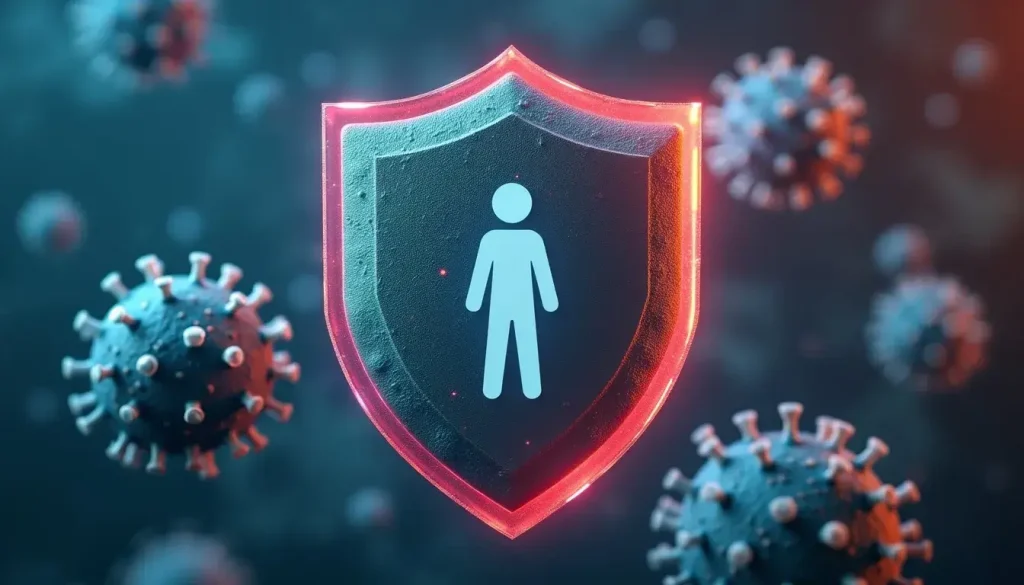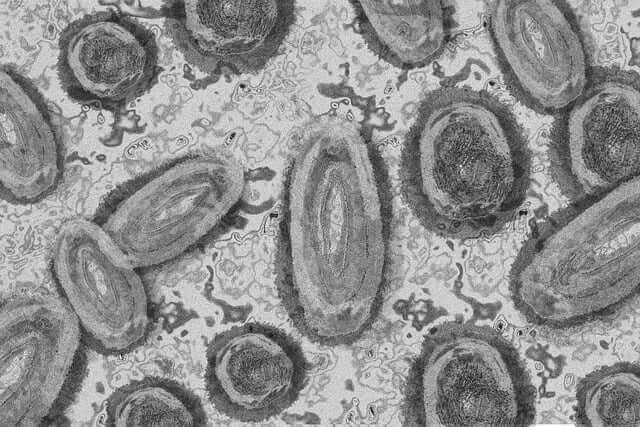New COVID-19 Vaccines 2024: Boosting Protection for All Ages


As we bid farewell to a summer marked by anotherCOVID-19resurgence, the impending fall and winter months beckon us to fortify our defenses against this persistent viral foe. Fortunately, the arrival of newlyupdated covid vaccinespromises to bolster our arsenal, offering enhancedvaccine protectionagainst severe illness, hospitalization, and the grim specter of death.
Unveiling theNew COVID Vaccinein2024
The Centers for Disease Control and Prevention (CDC) has sounded the clarion call, urging every individual aged six months and above to receive one of theupdated covid vaccines. These cutting-edge formulations, developed by pharmaceutical giantsPfizer-BioNTechandModerna, have garnered full approval from the Food and Drug Administration (FDA authorization) for individuals 12 years and older. Simultaneously, they have secured emergency use authorization for infants and children ranging from six months to 11 years of age. However, the FDA has yet to bestow its approval upon anupdated covid vaccine 2024fromNovavax, which targets a distinct strain dubbed JN.1. The previousNovavax vaccine, once authorized, has fallen into obsolescence, with all available doses having reached their expiration date.


Targeting the Elusive KP.2 Strain
Thenew covid vaccinehas set its sights on a formidable foe – the KP.2 strain of SARS-CoV-2, thenew virusresponsible for theCOVID-19pandemic. This strain, along with its closely related kin, has been circulating relentlessly throughout the United States, descended from the infamous Omicron variant. While JN.1 reigned supreme in May, it was swiftly dethroned by a consortium of Omicronviral variants, including the now-dominant KP.2, in June. Although KP.2 and JN.1 have since waned, accounting for a minimal number of cases by late August, theupdated covid vaccine 2024is poised to fortify our defenses against emerging, related variants.
A Clarion Call from the Experts
Dr. Scott Roberts, a renowned infectious diseases specialist at Yale Medicine, has thrown his weight behind theupdated covid vaccines, hailing them as the paramount strategy to safeguard againstCOVID-19infection and its severe ramifications, including hospitalization and death. His words resonate with a sobering reality: “COVID latest newssuggests it will never go away, and I am certain we are going to see an increase in cases in our communities this winter.” Dr. Roberts underscores the ongoing admissions ofCOVID-19patients to hospitals, with the majority being unvaccinated individuals. His advocacy for theupdated covid vaccine 2024stems from a place of profound concern for public health and a fervent desire to mitigate the pandemic’s toll.
Distinguishing Features: Beyond MereBooster Shots
Theupdated covid vaccinesare not merebooster shots; they represent a paradigm shift in our approach to combating this ever-evolving viral threat. Whilebooster shotsfortifyimmune responseby administering additional doses of the same or previousvaccine formulation, theupdated covid vaccinesare designed to evolve in lockstep with thevirus evolutionitself. SARS-CoV-2, the causative agent ofCOVID-19, is a master of mutation, continually spawning new strains that challenge our existing defenses. Theupdated covid vaccine 2024aims to match the circulating strain as closely as possible, ensuring our immunological arsenal remains potent and relevant. The 2023COVID-19vaccine formulationupdate, for instance, targeted theXBB.1.5 subvariant, which reigned supreme in the United States and across the globe at that juncture. This proactive approach underscores the urgency of staying ahead of the viral curve, adapting our strategies to match the ever-changing landscape.
Fortifying Protection, Restoring Resilience
While theupdated covid vaccinesmay not entirely prevent every SARS-CoV-2 infection, their primary objective is to fortify our defenses against severe illness, hospitalization, and the ultimate tragedy of death. Additionally, they serve to restore and amplify the waningvaccine protectionconferred by previouscovid vaccination, ensuring ourimmune responseremains primed and ready for battle. The necessity of avoiding severe illness cannot be overstated, as even during periods of decliningCOVID-19infections, surges in hospitalizations have occurred. In 2023 alone, a staggering 916,300 individuals were hospitalized in the United States due toCOVID-19, with a heartbreaking toll of 75,500 lives lost. Notably, the vast majority of those hospitalized had not received the previous year’supdated covid vaccine, underscoring the vital importance of staying current with the ever-evolvingvaccine formulation.


Safeguarding the Vulnerable
WhileCOVID-19can strike indiscriminately, certain segments of the population face heightened risks. Studies have consistently demonstrated that individuals aged 50 and above are more susceptible to severe illness than their younger counterparts, with those 65 and older facing an elevated risk of hospitalization and death. Individuals with compromisedimmune responseor chronic medical conditions, such as diabetes or heart disease, also find themselves in the crosshairs of this formidable foe. However, even the young and ostensibly healthy have not been spared, with some developing severe illness fromCOVID-19.COVID vaccination, therefore, serves as a bulwark against the ravages of this disease, reducing the likelihood of succumbing to its most pernicious effects, including the enigmatic and persistent condition known as Long COVID.
Outpacing theVirus Evolution
As the SARS-CoV-2new viruscontinues its relentless march, spawning new strains in its wake, concerns inevitably arise regarding thevaccine effectivenessof theupdated covid vaccines. In August, the KP.3.1.1 strain surged to dominance, accounting for a staggering 36.8% of cases, according to the CDC’s Nowcast, a model-based early estimation tool. Yet, Dr. Roberts remains steadfast in his belief that theupdated covid shotwill continue to confervaccine protectionagainst severe illness, even as thevirus evolutioncontinues and additionalviral variantsemerge. “Obviously, the more closely the strain and thevaccine formulationmatch, the better,” he concedes, “but if there is a significant change that makes a new strain very different, I would still expect the plannedcovid vaccineto work.” His confidence is bolstered by the precedent set by the monovalentcovid vaccineintroduced for the fall and winter of 2023, which targeted theXBB.1.5 subvariant. Despite the subsequent emergence of JN.1, boasting over 30 new mutations, thecovid vaccineelicited neutralizing antibodies against this divergent strain, proving its mettle.
AddressingVaccine SafetyConcerns
As with any medical intervention, questions regarding thevaccine safetyof theupdated covid vaccinesare inevitable. However, the CDC has resoundingly affirmed theirvaccine safetyandvaccine effectiveness, citing the hundreds of millions of individuals who have received thesecovid shots and the unparalleled intensity ofvaccine safetymonitoring employed in the United States. One area of concern has been the rare instances of myocarditis (inflammation of the heart muscle) and pericarditis (inflammation of the outer lining of the heart) observed followingcovid vaccination, primarily affecting adolescent and young adult males. Nonetheless, research has unequivocally demonstrated that cardiac complications, including myocarditis, were significantly higher after aCOVID-19infection than aftercovid vaccination, across all age groups and genders. Dr. Roberts offers a measured perspective, acknowledging that all vaccines carry the potential forvaccine side effectswhile underscoring the importance of weighing thevaccine benefitsagainst the risks – both at an individual and population level. “In most cases, especially with thecovid vaccine, thevaccine benefitsof thevaccine protectionagainstCOVID-19continue to outweigh the risk ofvaccine side effectsfrom thecovid vaccine,” he asserts. Individuals can report any adverse events related to acovid vaccinethrough the government’s Vaccine Adverse Event Reporting System (VAERS) site, contributing to the ongoing monitoring and evaluation of these life-saving interventions.
Combating MultipleRespiratory IllnessThreats
As we brace for the onslaught ofrespiratory illnessduring the colder months, the question of combiningCOVID-19covid vaccinationwith other preventive measures arises. According to theCDC recommendations, it is safe to receive bothCOVID-19andflu vaccines concurrently, a strategic move to bolster our defenses on multiple fronts. September and October remain the optimal window for most individuals to receive their annualflu vaccine, asseasonal vaccinationcontinues to be recommended throughout the influenza season, typically spanning from October through May. However, the jury is still out on the advisability of combiningCOVID-19covid vaccinationwith the newly available respiratory syncytial virus (RSV) shot. RSV, an illness that typically manifests as mild cold symptoms in most individuals, can escalate to life-threatening proportions in older adults and infants, necessitating hospitalization. While RSV vaccines were a novel introduction in 2023 for older adults, with recommendations extending to those 75 and older or those 60 and above with heightened risk factors, data is still lacking on the optimal strategy for concurrent administration withCOVID-19vaccines. Similarly, a new RSV vaccine became available last year for pregnant women, enabling them to pass protective antibodies to their newborns.
Heeding the Call: Who Should Receive theUpdated COVID Vaccine 2024?
The CDC’s clarion call resonates far and wide, advocating for every individual to receive one of theupdated covid vaccinesin2024. This recommendation takes on heightened urgency for specific segments of the population, including:
- Those who have never received aCOVID-19covid vaccine
- Individuals aged 65 and above
- High-risk individuals susceptible to severeCOVID-19
- Residents of long-term care facilities
- Pregnant women, breastfeeding mothers, those trying to conceive, or those who may become pregnant in the future
However, for individuals aged 65 and older, while a singlecovid shotis highly recommended, a second dose is not currently advised unless the individual is moderately or severely immunocompromised. If you have recently recovered fromCOVID-19, theCDC recommendationsadvise a prudent three-month waiting period before receiving anothercovid shot, allowing yourimmune responseample time to recuperate and mount an optimal response.
Ensuring EquitableVaccine Distribution
Recognizing the importance of widespreadcovid vaccination, the CDC has taken steps to ensure equitablevaccine distributionof theupdated covid vaccines. These life-saving interventions are covered by various insurance plans, including private insurers, Medicare, and Medicaid, removing financial barriers tovaccine protection. Moreover, uninsured children can access thecovid vaccinesthrough the Vaccine for Children Program, ensuring that no child is left behind in this global effort to safeguard public health.
Navigating theVaccine NewsLandscape
With theupdated covid vaccinesnow available, the question of where to obtain them becomes paramount. The federal government has compiled a comprehensive list of pharmacies offering thesecovid vaccineson the Vaccines.gov website, enabling individuals to locate nearby facilities and schedule appointments with ease. Alternatively, individuals can call the dedicated hotline at 1-800-232-0233 (TTY 1-888-720-7489) for assistance in locatingcovid vaccinationsites. However, it is essential to note that temporaryvaccine distributionand insurance-related issues may delay the availability of thecovid vaccinesin certain areas, necessitating patience and perseverance.
Pharmacy Partners: A Coordinated Effort
Recognizing the pivotal role of pharmacies in thecovid vaccinationeffort, numerous major retailers have stepped up to the challenge, offering theupdated covid vaccinesat their locations nationwide.




